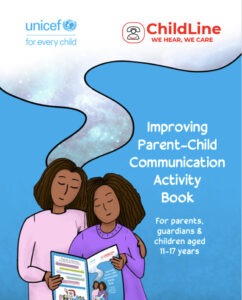What is Suicide?
Suicide is the process of purposely ending one’s own life. It is serious problem faced by many teens around the world. For many people, the thought of ending one’s own life seems scary or unreal. But for some, suicide may seem like the only way out of a difficult situation at a particular point in time. Whether it is you, or someone you know, who may be at risk, the signs and treatment of suicidal thoughts are important to know.
Some people who end their lives or attempt suicide might be trying to escape feelings of rejection, hurt, or loss. Others might be angry, ashamed, or guilty about something. Some people may be worried about disappointing friends or family members. And some may feel unwanted, unloved, victimized, or like they are a burden to others. It’s not that something must be wrong for someone to feel guilty, victimized, rejected or unloved- many people may have had these feelings at some point in time. What makes it different for a person with suicidal thoughts is that they don’t see any other way of dealing with their situation. They may not realize that the issues they are facing are only temporary and will not last forever.
Why do people commit suicide?
Many people who attempt suicide also suffer from depression. Depression is a strong mood involving sadness, discouragement, despair, or hopelessness that lasts for weeks, months, or even longer. It eventually interferes with a person’s ability to participate in normal activities. These feelings of depression affect their ability to reason the way others not experiencing depression would. If you are experiencing depression, it is very important to realize that any suicidal thoughts are due to the depressive emotions, and not because you want to end your life. For more information about Depression, read our article on Depression.
Alcohol and substance abuse (drugs) often increase suicidal thoughts in individuals, especially those who are already suffering from depression. In addition to their depressive effects, alcohol and drugs alter a person’s judgment. They interfere with the ability to assess risk, make good choices, and think of solutions to problems. Many suicide attempts occur when a person is under the influence of alcohol or drugs.
Many suicides and suicide attempts take place unintentionally- meaning that they are not always planned. Events such as a break up or fight, loss of a loved one or fear can trigger the reaction of a suicide attempt. These individuals may have difficulty expressing how they feel, so, for them, attempting suicide feels like the only way to get their message across. Sadly, many people who really didn’t mean to kill themselves end up dead or critically ill.
Getting Help
- Talk to someone you trust – Talking about what you are going through with someone you trust is one of the simplest and most important ways that you can deal with your emotions. It may be a friend, a parent or other family member, or even a teacher- just knowing that you don’t have to go through this ordeal alone is a great relief.
- Call for Help – There are also help lines available to you such as 800-SAVE or ChildLine (800-4321)
- Be around people who are caring and positive – Support is critical. A person having suicidal thoughts needs to feel that there are people who care about and love them. If you are experiencing suicidal thoughts, be sure to surround yourself with caring and positive people. This would help you to keep a positive attitude as well. If you know someone who is suffering from suicidal thoughts, you need to make every effort to support them. Supporting them also means getting them help from an adult or professional- even if you have been sworn to secrecy.
- See a therapist or counsellor – Therapy provides a safe, non-judgmental environmental for you to express yourself. There is no need to feel ashamed or fearful of anything when speaking with a counsellor. Talking about your feelings is the key to coping with the situation.
Resources
http://kidshealth.org/teen/your_mind/mental_health/suicide.html
http://www.medicinenet.com/suicide/article.htm







